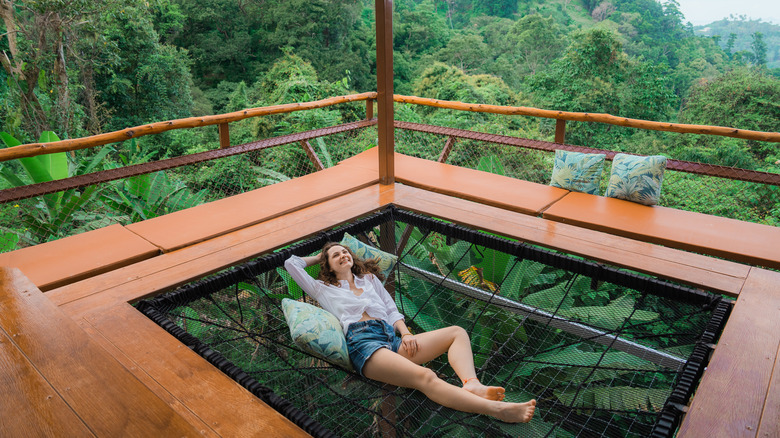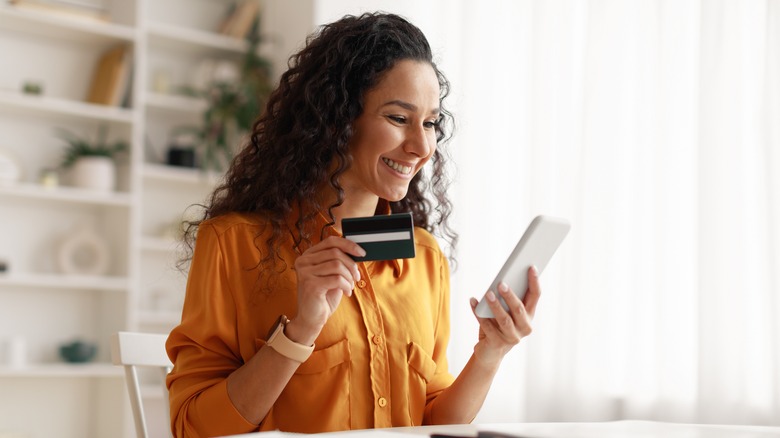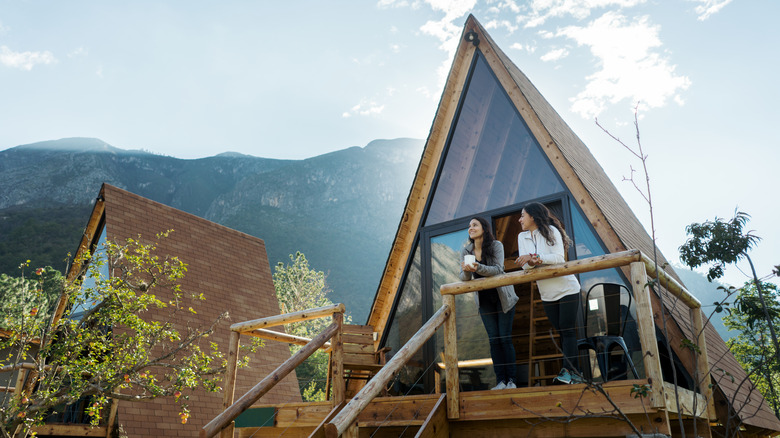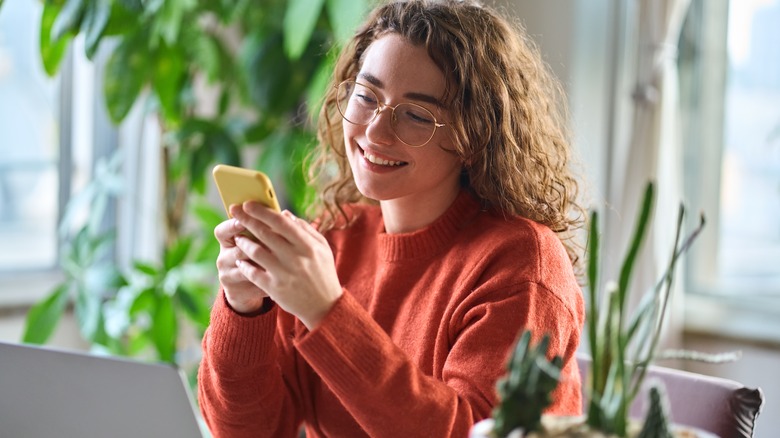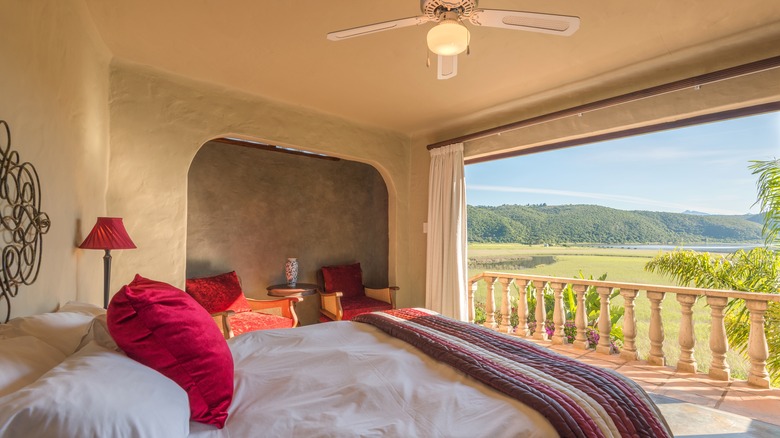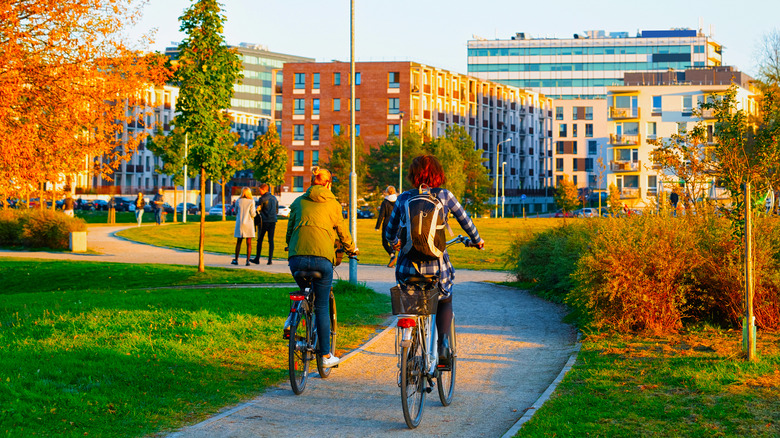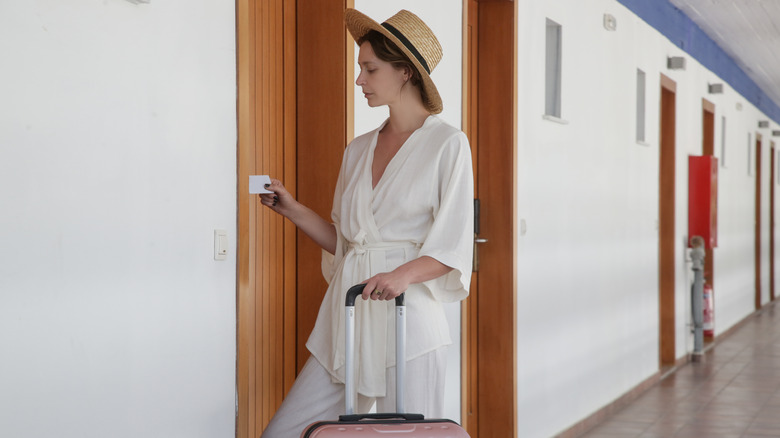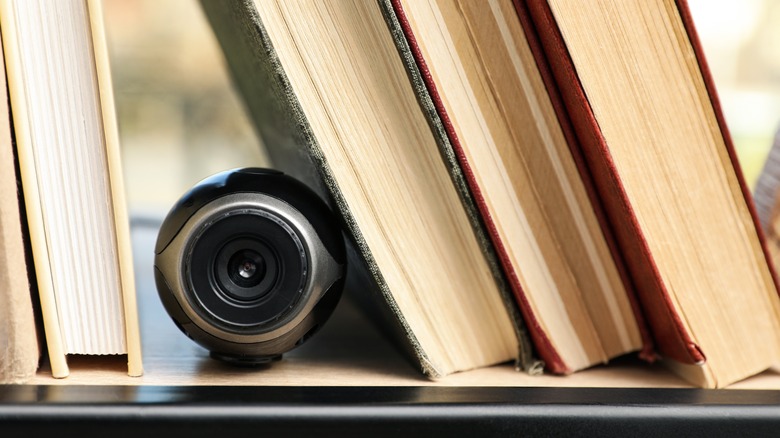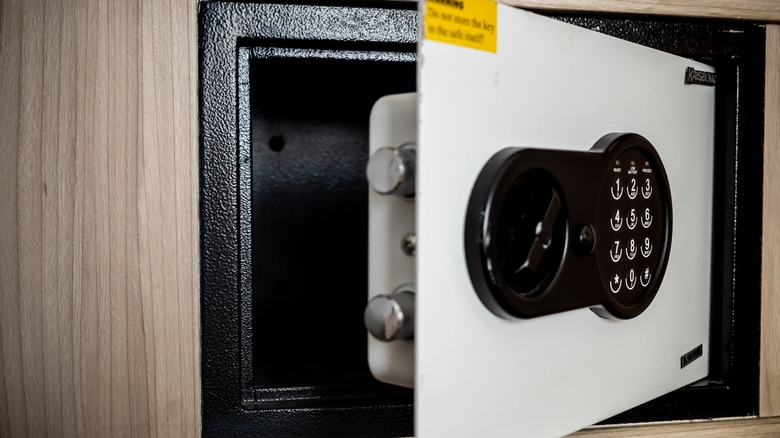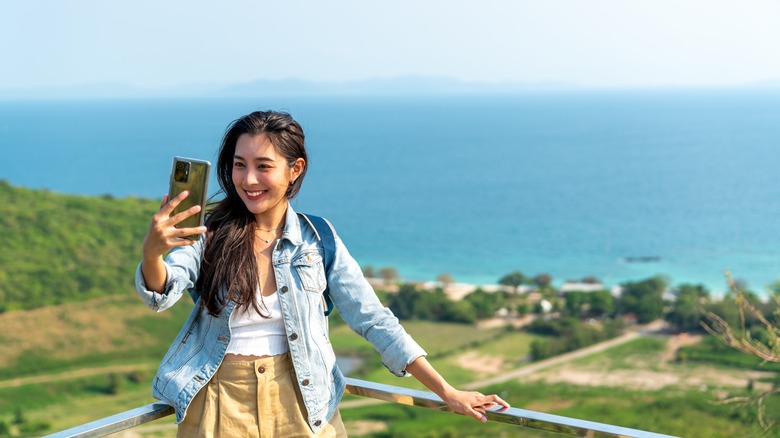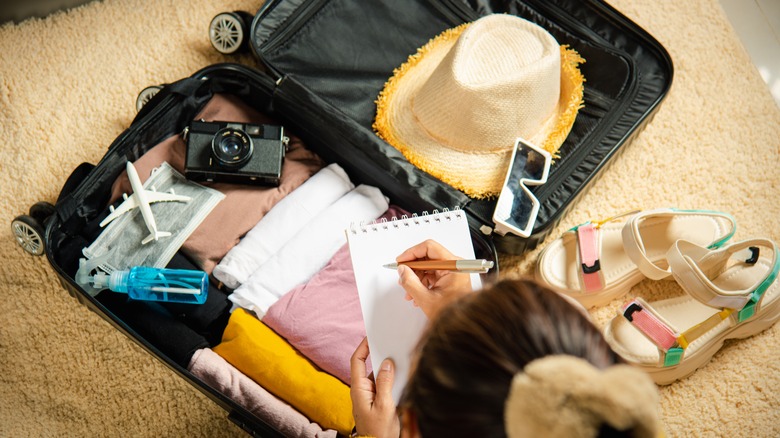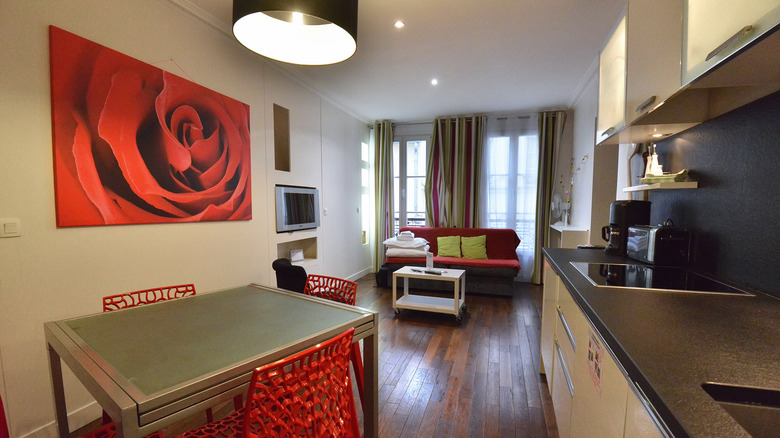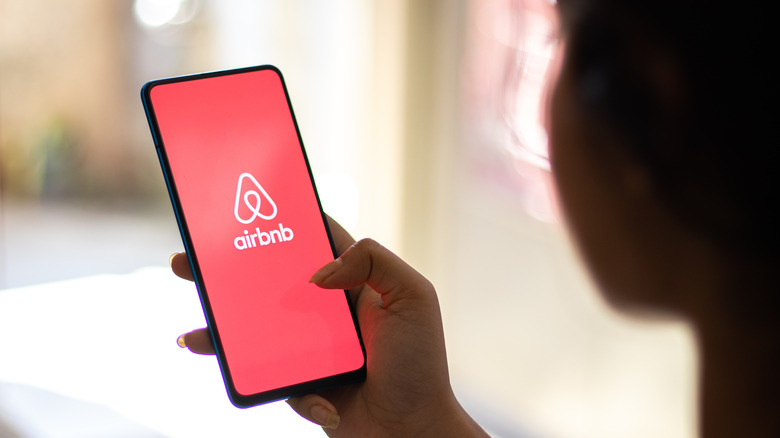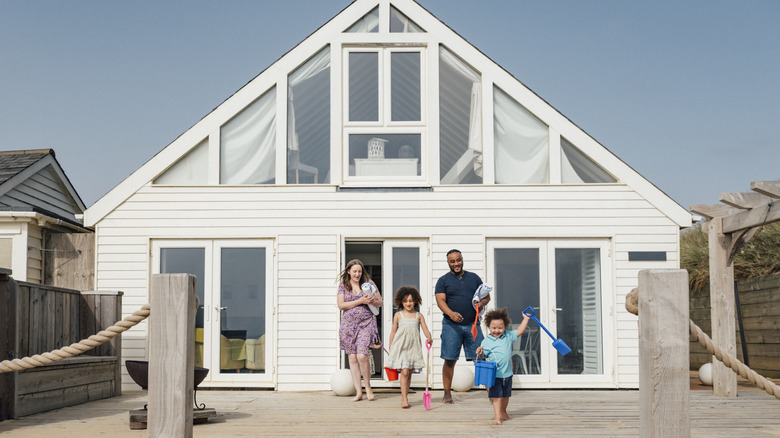How To Feel Safer When Staying In An Airbnb
Staying in an Airbnb can be an exciting way to enrich and add depth to your travel experience. With an array of accommodation choices and offering home-like amenities, opting for Airbnb has its own unique advantages. The abundance of options also makes it easier to find something that is tailored to your specific wants and needs. The convenience of renting an entire home is particularly popular among family travelers, as Airbnb can offer a bigger, more house-like, and comfortable space for everyone. Solo travelers, on the other hand, are drawn to the opportunity to interact with their hosts and experience their destination in a more locally immersive way.
However, the Airbnb journey is not without its risks. Compared to traditional hotels, some Airbnb properties may not be held up to high safety and quality standards. As a consequence of being operated individually, there are unique things to consider for ensuring a safe and enjoyable stay. On the more extreme side, payment scams and privacy breaches are not unheard of. Fortunately, there are some safety precautions that you can follow to be safer when staying in an Airbnb. From tips for selecting the perfect property to ensuring the Airbnb is child-safe, we'll empower you to experience a worry-free stay, whether you're a seasoned Airbnb traveler or a first-time guest.
Make sure your payment is safe
Always, always complete all payments within the Airbnb platform. Avoid making direct payments to the host, whether in cash or through direct transfers. Also, don't share any credit card or banking details with your host. By doing this, you're protecting yourself against potential fraud.
If a host contacts you and requests a direct payment, suggest completing the transaction within Airbnb's secure system. Even if they offer a better rate for direct payment, it's in your best interest to decline. Paying outside the platform means your payment will not be protected, and no matter what happens, you won't be eligible to get a refund from Airbnb — even if the listing is fraudulent or double-booked.
If a host insists on a direct payment, it can't be for a good reason. Airbnb even suggests that you report the host if they insist on payment outside the app. So if that happens, it's best to keep searching and move on to another rental. The promise of a better deal is not worth the risk of getting scammed.
Read the reviews thoroughly
When it comes to choosing your ideal Airbnb property, reading the reviews may be as important as reading the descriptions. Reviews shared by previous guests can offer valuable insights about overall guest experiences, property quality, and the host's performance. While it's tempting to skim through the reviews, it is worth taking your time and paying close attention to see if any guests have expressed any potential safety concerns during their stay. These concerns may relate to security, privacy, cleanliness, or other critical aspects.
That being said, don't take every review at face value. Check if a review you're considering is recent and relevant. You can also prioritize verified Airbnb reviews, which ensure that the person who left the review has stayed at the property and provided a fair assessment. You may need to dig deep to find specific and valuable insights, but it can make a world of difference in making or breaking your Airbnb experience.
Get to know your host
Before locking in your Airbnb booking, take a moment to conduct your own simple vetting of the host. Dive into their profile description and make sure they've provided a certified government ID, phone number, and email. It's even better if the host links their profiles to social networks like Facebook and Instagram, helping to further ensure transparency and legitimacy.
Be proactive and use Airbnb's messaging feature to initiate a conversation. Don't hesitate to ask the Airbnb host questions about anything related to the accommodation, neighborhood, or any house rules that might influence your stay. If, at any point, you sense any shady behavior or unclear communication, it's best to take a step back and move on to other options.
Take the opportunity to discuss more specific details such as house amenities, check-in/check-out procedures, and to ask about any safety concerns you may have. It's better to make sure you'll feel comfortable beforehand, and a good host should appreciate your diligence and be happy to provide any relevant information.
Extend your research beyond the Airbnb platform
If there are no Airbnb reviews to help inform your decision, consider extending your search to other platforms such as Vrbo, Booking.com, Google Maps, and local listing services. Exploring these other platforms allows you to gather a more comprehensive understanding and compare reviews. The host may have just recently listed their property on Airbnb, despite having operated the place for a long time on other platforms.
The same principle goes for getting to know your host. You can try searching social media platforms like Facebook, LinkedIn, and Instagram to gather additional context about the host's background and reputation. However, keep your communication inside the Airbnb app to safeguard your privacy. If the host is part of a rental management group, you can also extend your vetting to reviews of the company.
Familiarize yourself with the neighborhood
If you're traveling to a new place, make an effort to learn as much as you can about the property's nearby area. Use Google Street View to take a virtual tour of the area before you even arrive, so you can assess the neighborhood's ambiance and general surroundings. You can also perform a Google search or read travel forums to uncover lesser-known facts to provide you with more insight. Additionally, check local news or set up Google Alerts before your travel to stay informed of any potential safety issues before arrival.
Checking the reviews of nearby places can also be insightful to get a sense of what the neighborhood is like. In addition to safety considerations, understanding the proximity of essential facilities like stores, hospitals, and other public spaces can help you feel safer and better prepared. If you're planning to explore the area, it's wise to plan ahead. This allows you to feel more confident and comfortable during your adventure. Apps like AreaVibes and CityProtect can also provide you with area insights.
Do a safety check
Once you've arrived at your Airbnb, take time to do a safety check. It can be as simple or as thorough as you feel is necessary, but the bare minimum you need to do is check the door and window locks. Make sure they all work properly for your own safety and peace of mind. Another important thing is to familiarize yourself with the building's layout and identify several exit points for emergencies, allowing you to create a mental map of possible evacuation routes to exit the building. This preparation can really make a difference in a time-sensitive situation.
Hosts can now receive free smoke and carbon monoxide alarms for Airbnb listings, but it's still a good idea to confirm with your host that they have one. If they don't, you can always bring your own portable alarm. Once you've arrived, test the alarms to make sure they're working properly. Additionally, inquire and locate fire extinguishers within the premises and familiarize yourself with their placement.
Check for hidden cameras
The rise of sneaky hidden cameras has become a growing concern for both Airbnb guests and traditional hotel guests. But fear not, there are ways to check for their existence beyond just visually scanning the rooms. First, turn off the lights and use your phone flashlight to sweep the room. If hidden cameras are lurking, you'll catch glinty reflections from the camera lenses.
Don't stop there; shine your flashlight on mirrors to ensure they're not two-way. You can determine this by peeking into the mirror with a little illumination from the flashlight. Another method to check your mirror is with the fingernail test. It's pretty simple and straightforward. Place a fingernail against the glass and observe. In an ordinary one-way mirror, your finger will not meet its reflection. On the other hand, if you can touch your own reflection, there's a good chance that you're looking at a two-way mirror.
Furthermore, check common areas such as the living room and the bathroom, ensuring you cover all potential spaces where hidden cameras might be positioned. Be particularly vigilant around objects that could conceal small cameras such as between books, within light bulbs, and inside house plants. If you're especially concerned about hidden cameras or if you travel often, it might be worth looking into investing in an anti-spy camera detector.
Store your valuables safely
Unlike hotels, your Airbnb may not always be equipped with a safe or lockbox. So instead of assuming you'll be provided with one, ask your host beforehand. When setting your lockbox code, avoid using combinations that are easy to guess, such as repeated digits or significant dates like your birthday, for example. If a manual lockbox is provided, ask your host if the combination has been reset recently.
If your Airbnb doesn't have a lockbox, try to find discreet spots to stow away your valuables. A safer option would be storing them inside your luggage and locking it. Another option is to hide them under the bed or inside a dresser — any spot that's not immediately visible. Also, if you're sharing a property with other guests, make sure you don't leave valuables in communal spaces.
Share your travel plans to the right people
Just as when traveling in general, it's a good idea to inform at least someone about your plans. Share your Airbnb details with a trusted friend or family member who isn't on the trip with you. Make sure they know the address where you're staying, the link to the listing on Airbnb, and the host's contact information. Let your trusted contact know the dates you'll be staying and when you'll be back, or share your complete travel itinerary with them. This can include details such as flight information and planned activities. Not only will this contribute to your own sense of security, but it can also reassure your loved ones.
It's also important to strike a balance and refrain from oversharing on social media. While you can still post pictures of your cozy Airbnb, avoid providing unnecessary insights into your location or schedule, as this could compromise your safety. When you do post on social media, be mindful that some platforms may include location stamps on your post. If you have a printed copy of your tickets and itinerary, be sure to keep it safe and private, and keep digital backups if possible.
Prepare your own safety measures
When it comes to enhancing Airbnb safety, you can always go beyond relying on your host to provide everything. Before your trip, take note of the safety measures and amenities provided by your host, so you can make up for what might be lacking. As stated previously, Airbnb offers free smoke detectors and carbon monoxide detectors for its hosts, but confirm with your host that they're present and working properly. To be on the safe side, or if detectors are not provided, you can bring portable ones.
You may also consider bringing an extra lock or a portable door-stop alarm, especially if you're sharing the space with the host or other guests. Slip this handy alarm under your bedroom door, and it will activate if someone tries to sneak in. You will be immediately notified, as will the intruder. If you're traveling with valuables, you may consider bringing your own, portable travel safe. Even if your Airbnb offers a safe, bringing a personal lockbox provides you with total control.
Lastly, purchasing some form of travel insurance may also help you feel safer when staying at an Airbnb. Travel insurance can protect you in the event of unexpected incidents such as theft, trip cancellations, medical emergencies, and more.
Read the house manual
The Airbnb house manual is not the same as the house rules found on the app. The house manual is a comprehensive guide that provides important information about the premises, such as instructions for appliances, safety guidelines, emergency contacts, information concerning amenities, Wi-Fi passwords, and other essential details. This information is typically shared after you've confirmed your booking, with some hosts even providing printed copies at the property. When looking over the house manual, pay particularly close attention to the instructions for appliances and follow them carefully to minimize the risk of household accidents.
A house manual's safety information should also include emergency procedures, the location of fire extinguishers, and evacuation plans. Needless to say, this information will help you feel safer and more confident in enjoying your stay. The house manual may also feature a list of nearby grocery stores, medical facilities, restaurants, and other essential services for your convenience. Adhering to the house manual isn't just about safety, though; it also helps you avoid potential issues with the host.
Do not hesitate to use Airbnb support
You can utilize Airbnb's customer service for any problems that occur before booking, during your stay, or afterward. Reach out to Airbnb support if you have any safety concerns regarding your accommodations. This includes situations where your Airbnb doesn't match the advertised description, if there's any issue with payments or reservations, concerns regarding Airbnb's rules and regulations, or if you perceive any safety risks during your stay.
When contacting Airbnb support, make sure you provide detailed information about the concerns you've identified. This may include photos, screenshots, and a clear description of the issue, as it will help the support team in addressing your case. You can reach the 24/7 support team from the Airbnb Help Center. Scroll down to find the "Contact Us" button and click to start a chat message that describes your issue. You can also reach them via phone or email, or even via social media like Twitter and Facebook.
Airbnb also has neighborhood support to help you report noise complaints or any neighborhood disturbance. You can request a call for urgent neighborhood situations. However, in cases of immediate safety concerns or emergencies, Airbnb recommends calling local emergency services immediately.
Make sure the place is safe for children (if applicable)
Renting an Airbnb comes with many advantages when it comes to traveling with children. The properties often offer more space and separate rooms for the whole family to enjoy. Moreover, facilities like kitchens, laundry machines, and other home-like amenities may help you save money during a family trip.
However, if you're traveling with infants or children, it's important to make sure that the property you choose is suitable for kids. Some hosts may even explicitly mention that their listing might not be safe for children, so it's essential to read the descriptions thoroughly. Additionally, go to the review section and look for specific comments regarding any family experiences.
Beyond descriptions, the photos may tell you things otherwise overlooked, so make sure you go through the pictures provided by your host. Generally speaking, a less cluttered space with minimal home decor and sturdy furniture will be safer for children. You may want to avoid places with long staircases, glass furniture, and other "breakable" items, and consider properties with larger square footage to provide ample space for your family. Lastly, if your children have pet allergies, you'll want to avoid renting a pet-friendly Airbnb.
